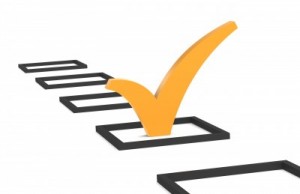 Taking care of a boat can be more than a lot of boat owners bargained for. There are plenty of things on a boat that can break and will. To keep ahead of things every new boat owner need to know a few basics to make sure boat ownership is fun and safe.
Taking care of a boat can be more than a lot of boat owners bargained for. There are plenty of things on a boat that can break and will. To keep ahead of things every new boat owner need to know a few basics to make sure boat ownership is fun and safe.
A battery can cause more than just aggravation; they can cause big problems if not taken care of properly. Low battery voltage can damage starters and trim motors. While it may not make sense at first, motors running at lower voltage draw higher current. Higher current means higher heat. Cable insulation and insulation on motor windings can be damaged Keep the batteries in top condition and you can save money. Checking the water level batteries is a must. If you have to add water distilled water is recommended. Add enough water to each cell needing more to full point. At full, you should see a dimple in the cell water created by the rectangular full slot in the cell. This should be a weekly check at first until you learn your boat.
Start with clean, tight battery connections and keep them that way. A very thin but even coat of marine grease helps keep corrosion away. If you have wing nuts to hold the battery cable in place think about changing to stainless steel hex nuts with stainless steel dimple lock washers underneath. The dimple lock washers or star lock washers provide for a better connection and prevent loose connections. Make sure they are stainless. Check your battery terminals regularly to make sure there is no corrosion. There are multitudes of gadgets to buy for your boat. If you have a lot of stuff running, like the stereo, bait-tank pump, plug-in cooler and the big screen bottom finder, think about turning a few things off before starting the engine.
Your motor manufacturer will give you a big list of things to do to keep your motor in good shape. Don’t forget to keep boat checked. Fishing line wrapped around the prop shaft kills lower units and the damage is not under warrantee. Learn to pull your propeller regularly and make sure no monofilament line is hiding behind the prop. Make sure you know how to properly pull and replace the prop before attempting to pull the prop. Any dealer will be glad to show you how, or check in your owner’s manual. Keep a light coat of marine grade grease on the prop shaft. Even it you don’t fish, other people do so check for line regularly.
Your bilge pump is a pretty important piece of equipment. Check it often to makes sure the connections are clean and the bilge is clean. If you bought a used boat there may be more trash in the bilge than is good for the bilge pump. Think about adding a screen wire strainer for the bilge pump. Finally, make a list of all the tools you used to tighten the battery terminals, pull the prop, check the fuel/water separator and repair bilge pump wires. Keep these tools on the boat just in case. Wrapping the tools up in an oil soaked rag will keep them usable when you need them.
Source: “DYI Tips for Proud New Boat Owners.” Yahoo! Contributor Network. Web. 22 May 2013.
Follow Us: Facebook – Foursquare – Twitter – YouTube – LinkedIn
